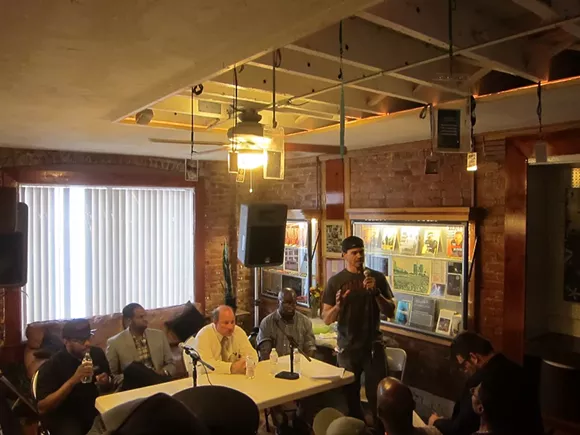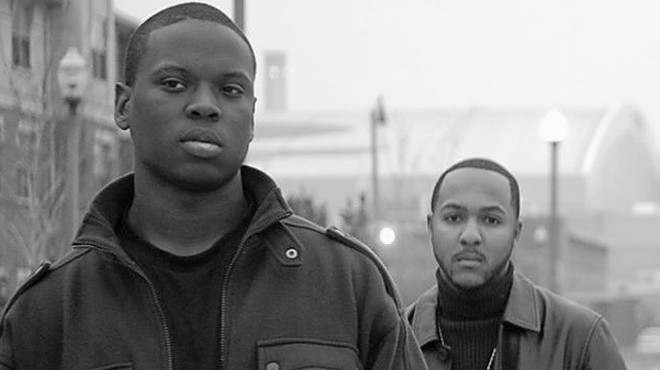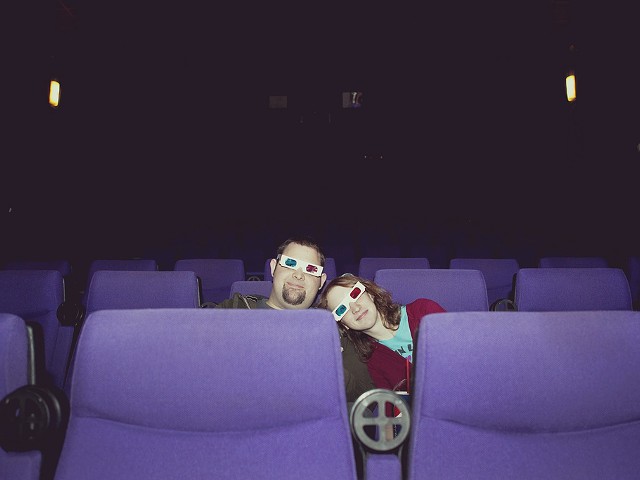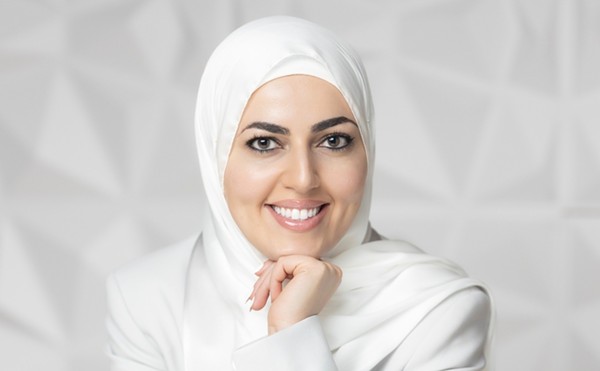
Last week, in a nondescript East Grand Boulevard building that houses the world's lone techno museum, a group of renowned Detroit techno DJs and producers convened with big names from the street racing industry to promote turning the two vibrant scenes into economic drivers for the city. Theo Parrish was there. Omar-S was there. And, remarkably, so was Detroit Mayor Mike Duggan, who sat, listened, and asked how he could support.
The message of the meeting at Submerge, which doubles as the home of acclaimed Detroit techno label Underground Resistance, was clear: Detroit is sitting on a wealth of talent that it's forced to export, and other places wind up profiting.
"Around the world, when you ask people about Detroit ... what they say is cars and music," said UR label manager Cornelius Harris. "Electronic music is a $6.5 billion industry globally. It was created here. The question is, of course, how much of that money makes its way back into the city? And the answer is very little."
Harris and a group of Underground Resistance artists and affiliates are hoping to make Detroit a destination place for techno and racing, much like Berlin has become a global hub for electronic music. That city embraced and adopted Detroit techno early on, and has become a place for DJs and producers around the world to go to grow their talent. Lax policies surrounding nightlife have allowed the club culture associated with the genre to thrive, and electronic music tourism has given Berlin a huge economic boost, with hundreds of nightclubs that legally operate around the clock. Solid numbers on how much money techno tourism brings to the city are unavailable, but UR co-founder Mike Banks says Berlin's economic minister has estimated it at $900 million a year.
In order to make something like that happen in Detroit, the music artists and race organizers say they will need two things from Duggan and city leaders: a willingness to loosen restrictions surrounding nightlife, and permission to turn City Airport — which could soon be slated for a redesign — into a race track.
Let's take these ideas one at a time.
Historically, Detroit has not offered a friendly environment for underground and all-night parties. Save for one weekend a year — when the city welcomes an influx of electronic music fans from around the world for Movement — bars generally close or stop serving alcohol at 2 a.m., and Detroit police regularly raid or break up parties in unsanctioned locations they characterize as "blind pigs." According to those who've helped cultivate the techno scene here, the genre has been unable to realize its full potential because of this lack of support.
In late 2014, however, with Detroit just exiting bankruptcy, city officials began to recognize the untapped economic potential in techno. It was then that the nonprofit Detroit-Berlin Connection was formed by members of UR and Berliner Dimitri Hegemann — who founded the famed club Tresor and has been eyeing the Packard Plant as the site for a sister venue. The following year, the group brought Detroit city council members and mayoral staff to Berlin, where they looked at how nurturing a creative subculture and repurposing industrial spaces could aid in Detroit's economic recovery.
But little has changed since that trip, and Detroit techno insiders hoping to push the issue further are now looking to Duggan for support. Suggestions made to the mayor at the meeting included adding a nightlife liaison to his staff and designating an official entertainment district where parties can go later and be held in unconventional spaces. The district is envisioned for the North End neighborhood that is home to UR and Submerge. DJ-producers Moodymann and Theo Parrish work out of spaces within a mile of the site.
"We can get the people here, we can do all that," said Harris. "We don't need help from the city for that, we're just looking for an environment that's amenable for that kind of thing happening."
Duggan seemed open to the idea of having a staffer handle nightlife but stopped short of offering supporting for an official entertainment district.
"I feel like if the government designates something as the place where the creative types should go, I get a sense that a bunch are going to go the other way, just by their nature," Duggan told those gathered.
Still, he said he would look into what the city's special events office has been doing to accommodate events in raw spaces and expressed tentative support for allowing parties to go later.
"I don't have any problem with it, I was supportive of the 4 a.m. bar activity," he said, referencing new rules that allow some places in Detroit to stay open later on some nights of the year. "We need to do it in a way that's sensitive to neighbors and the like, but I think if we plan it together we can do it."
The mayor was also receptive to the idea of taking drag racing off of the streets and putting it in City Airport, where advocates say a race track would be a money maker and jobs creator. It would also help make streets safer and keep people from being arrested.
This spring, city officials revealed they were thinking about eliminating aviation activity at City Airport, which hasn't offered regular commercial flights in more than a decade and has been losing the city money for years. They've commissioned a study to look into other possible uses for the airport, with a focus on economic impact and job creation.
The site's potential as a race track will be tested this summer with a pair of drag racing events that have come together following a protracted effort to obtain regulatory approval from the Federal Aviation Administration. And, incredibly, it appears it was Detroit Police Chief James Craig who helped race organizers gain access to the site.
"I don't know how many cities in America can say their police chief is pushing for drag races, but [Chief Craig] thinks if we can prove that these events work really well this year, then we can talk about a permanent race track if there is a basis for it," said Duggan. "You've got a huge ally, and we're gonna support this and we're gonna see how far it goes."
In addition to creating new revenue streams for Detroit, those pushing to turn the city's racing and techno scenes into productive economies see it as a chance to lift up underdeveloped areas by utilizing the talents and skills of people who already live in the city. For them, it's especially important in the North End, a historically black neighborhood upon which the redevelopment of the area dubbed "greater downtown" is encroaching.
"We wanna make sure that ... we don't get pushed out," said Harris.
"[Gentrification is] something that we're looking at and saying ... what can we do and what kind of help can we get from the city to make certain that doesn't happen here and — as opposed to having a situation where our success actually ends up doing us in — that we can actually take our successes and help the city of Detroit be that world class city we already know it to be.”






